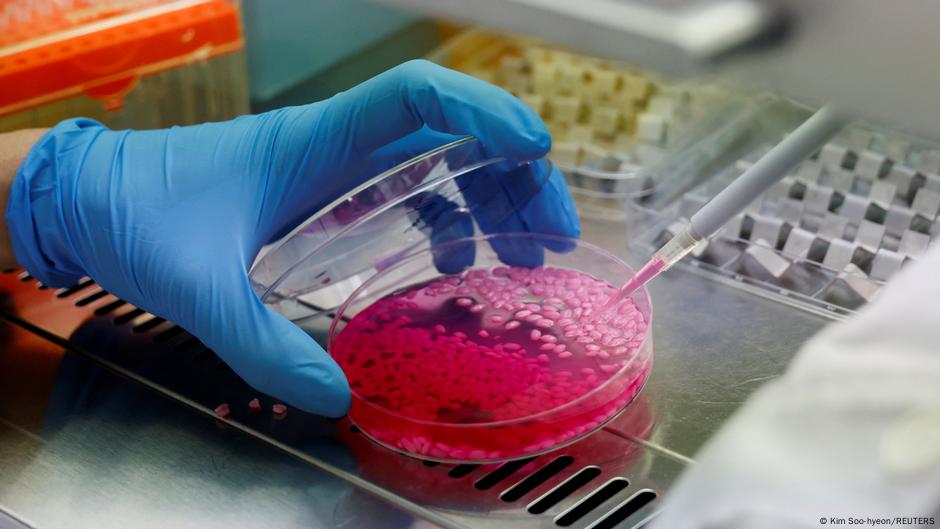Fraudulent Research Undermines Scientific Trust

The Growing Threat of Fake Science in Academic Publishing
The integrity of academic publishing is under threat as organized networks of bad actors are increasingly infiltrating the system to promote fraudulent scientific research. Experts warn that this trend is undermining the credibility of medical and scientific research, with far-reaching consequences for public health and scientific progress.
A recent study published in the journal PNAS has uncovered evidence of coordinated efforts by groups of editors and "brokers" who facilitate the publication of low-quality or outright fake research. By analyzing over five million scientific articles from 70,000 journals, researchers have identified a growing network of misconduct that bypasses traditional peer review processes.
Lead author Reece Richardson, a social scientist at Northwestern University, emphasized the scale of the problem: “There are groups of editors conspiring to publish low-quality articles at scale, escaping traditional peer review processes.” This kind of systemic fraud not only compromises the quality of scientific output but also erodes public trust in science.
The Consequences of Scientific Fraud
Scientific fraud can take many forms, including fabricated data, unverified results, plagiarism, and manipulated images. According to Richardson, these practices are becoming more sophisticated, with some networks spanning thousands of articles. For instance, image duplication is now being mapped across large-scale networks, highlighting the complexity of the issue.
The impact of such fraud is profound. Anna Abalkina, a social scientist at the Free University of Berlin, noted that fraudulent research can distort systematic reviews and meta-analyses, which are critical for guiding clinical decisions and policy-making. In some cases, it can even delay the development of life-saving treatments.
One high-profile example involved the misuse of fraudulent research during the COVID-19 pandemic. Studies claiming hydroxychloroquine as an effective treatment were used to influence both scientific and political decisions. These studies were often published in so-called “self-promotion journals,” where authors frequently serve as their own editors. This lack of oversight allowed misleading information to gain traction, with serious implications for public health.
The Role of AI in Expanding Research Misconduct
Artificial intelligence is also playing a role in the rise of research misconduct. While AI tools can enhance scientific discovery, they are also being misused to generate fake data or manipulate research findings. This has made it harder for journal editors and peer reviewers to detect fraudulent work, further complicating efforts to maintain the integrity of the scientific literature.
Despite these challenges, some publishers are taking steps to address the issue. Springer Nature, for example, retracted 2,923 articles from its publications in 2024 alone. However, retractions come too late—once bad science is published, it can influence future research, funding decisions, and public policy.
A Systemic Problem Rooted in Incentives
Experts argue that the root cause of scientific fraud lies in how research is valued and evaluated. Scientists are often under pressure to publish frequently, and career advancement and funding opportunities depend heavily on the number of publications and citations. This creates a system where some researchers may feel forced to engage in unethical practices to meet these expectations.
Richardson highlighted the dilemma facing many scientists: “Where you're faced with a lack of resources and yet you're pressured to put out publications, you're left with two options really: You either buy into scientific fraud, or you leave science.” This situation is not unique to any one country or institution—it affects tens of thousands of researchers globally.
A Call for Change
To combat this crisis, Richardson and other experts suggest a fundamental shift in how scientific work is assessed. They argue that quantitative metrics like publication counts and citation indices should be replaced with more meaningful measures of research quality and impact.
Luis Amaral, a senior author of the study and a researcher at Northwestern University, described the issue as one of the most distressing he has encountered. “If you believe that science is useful and important for humanity, then you have to fight for it,” he said.
While the road to restoring trust in science will be long, the first step is recognizing the problem and taking decisive action to address it. Only then can the scientific community ensure that research continues to serve as a reliable foundation for progress and innovation.

Comments
Post a Comment